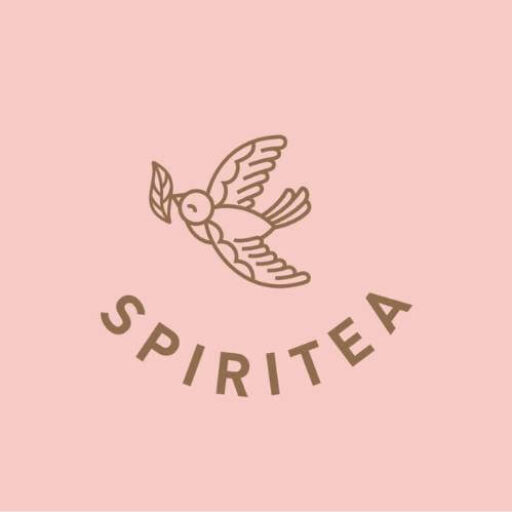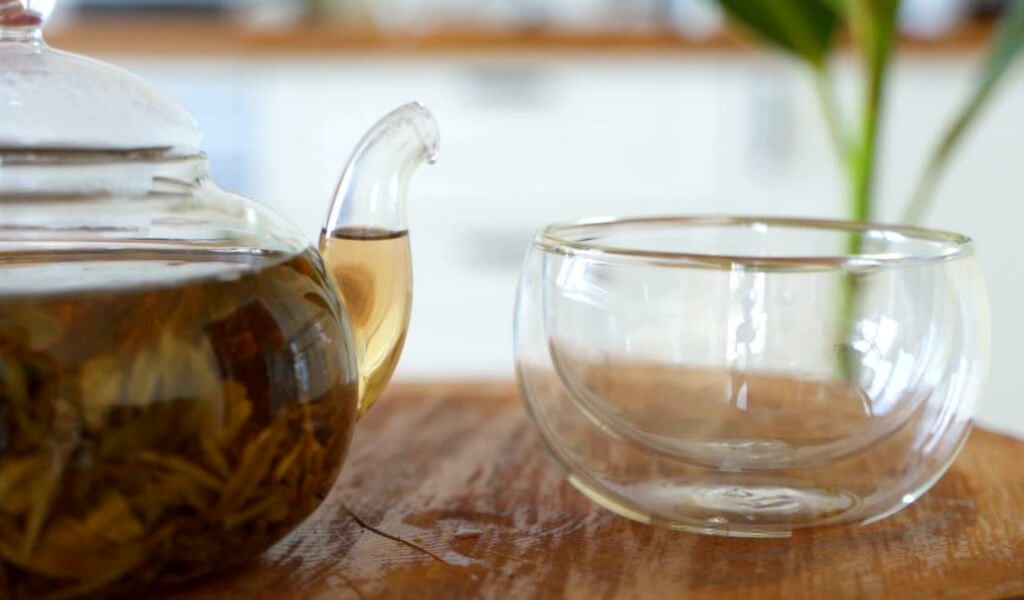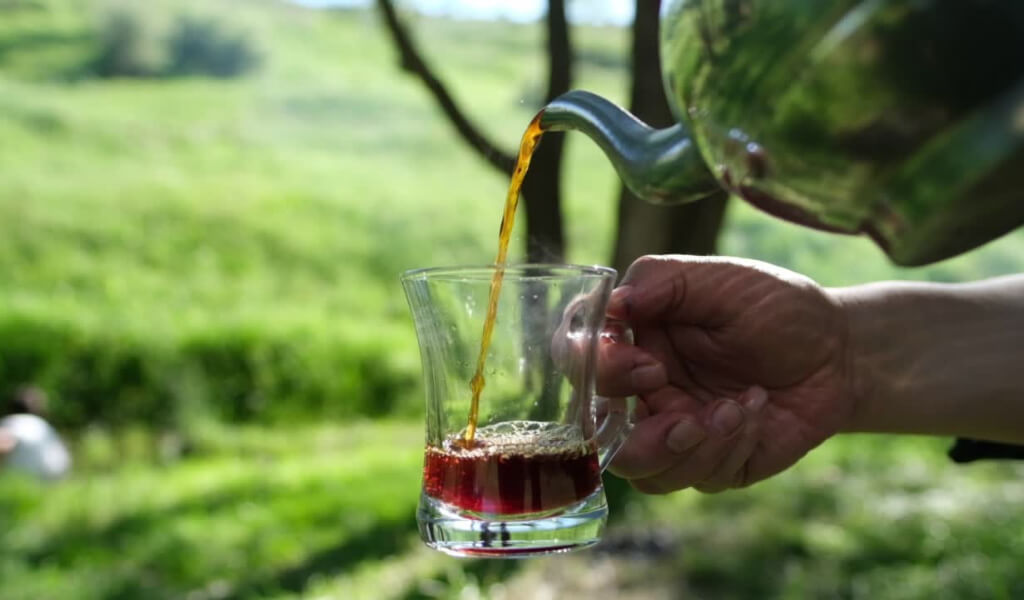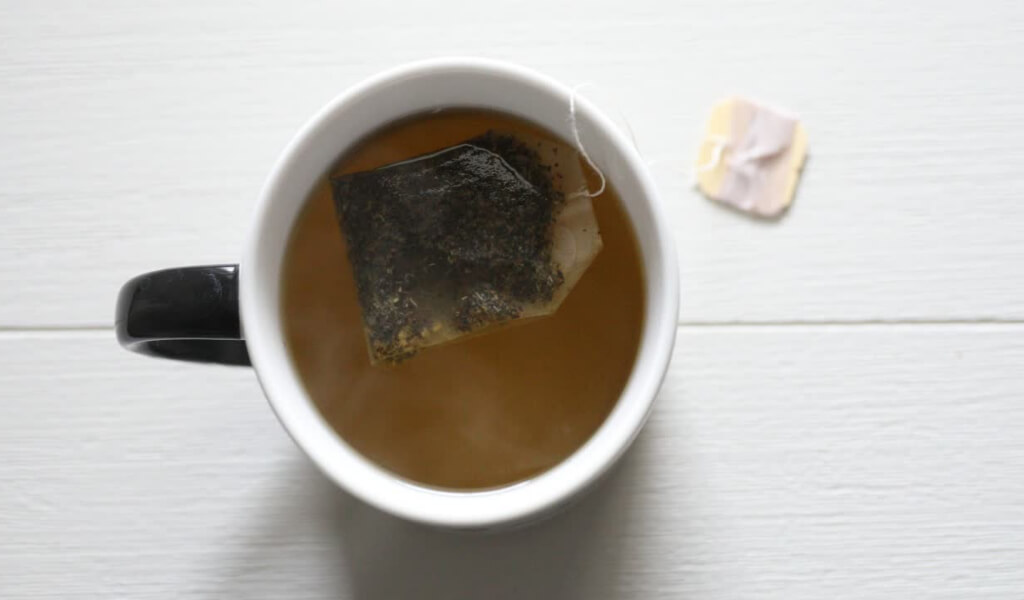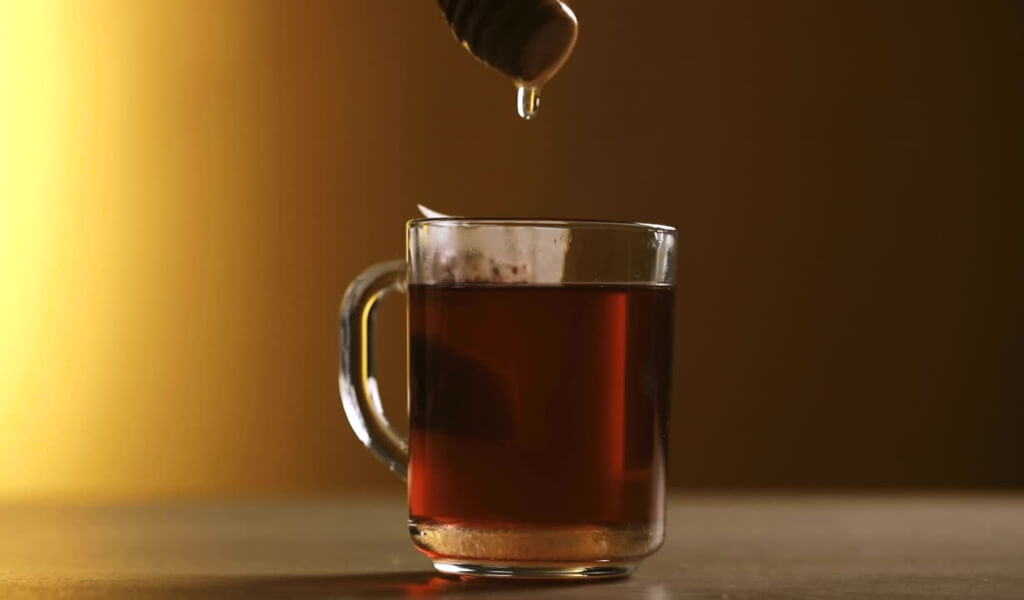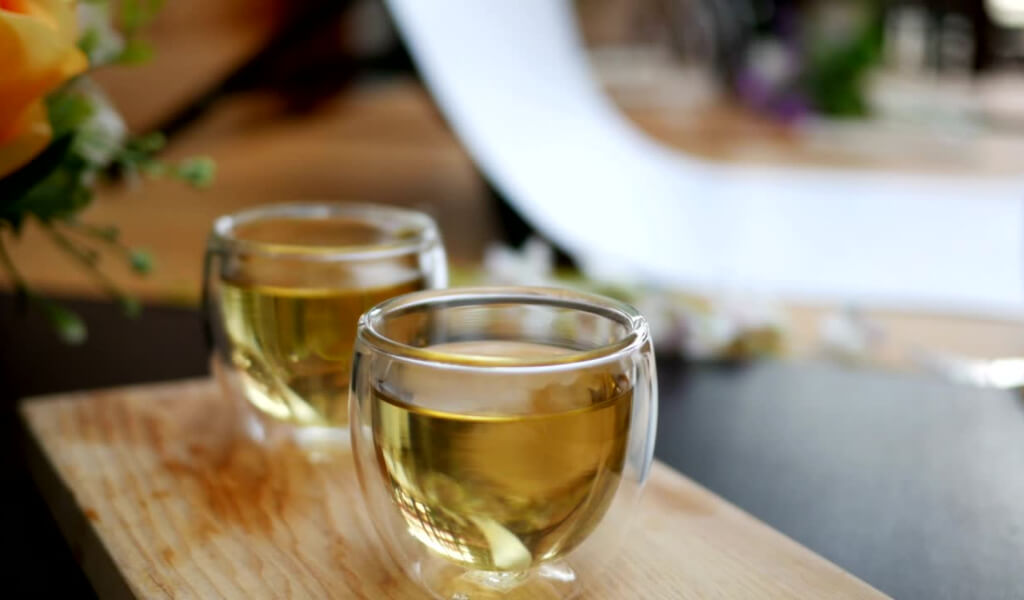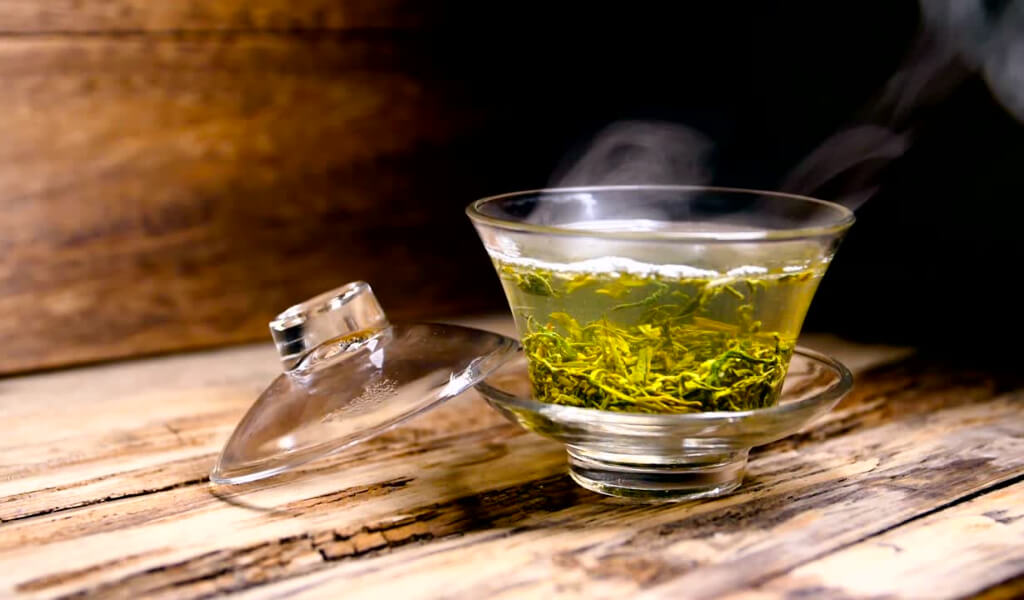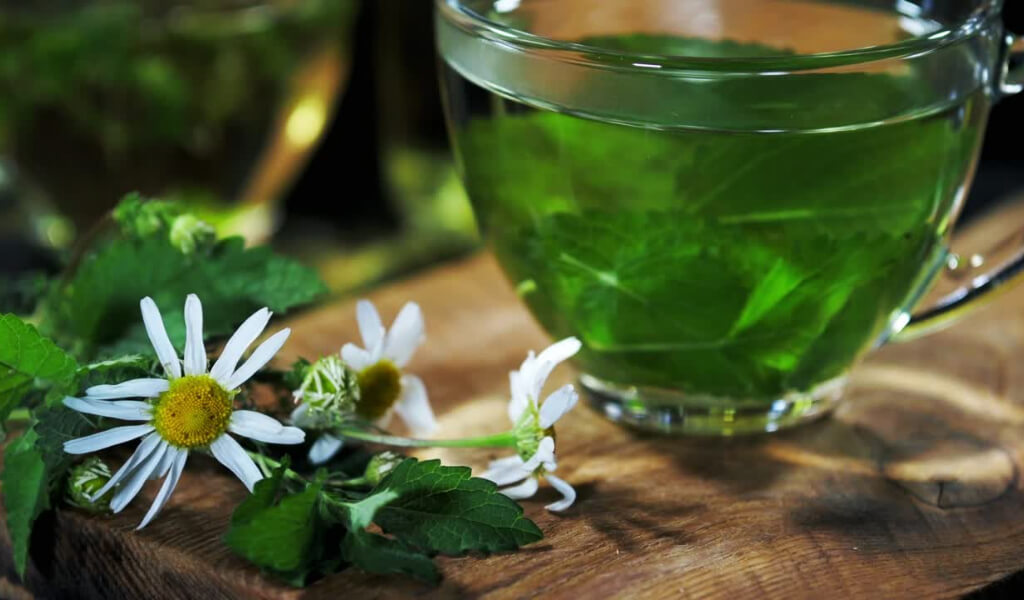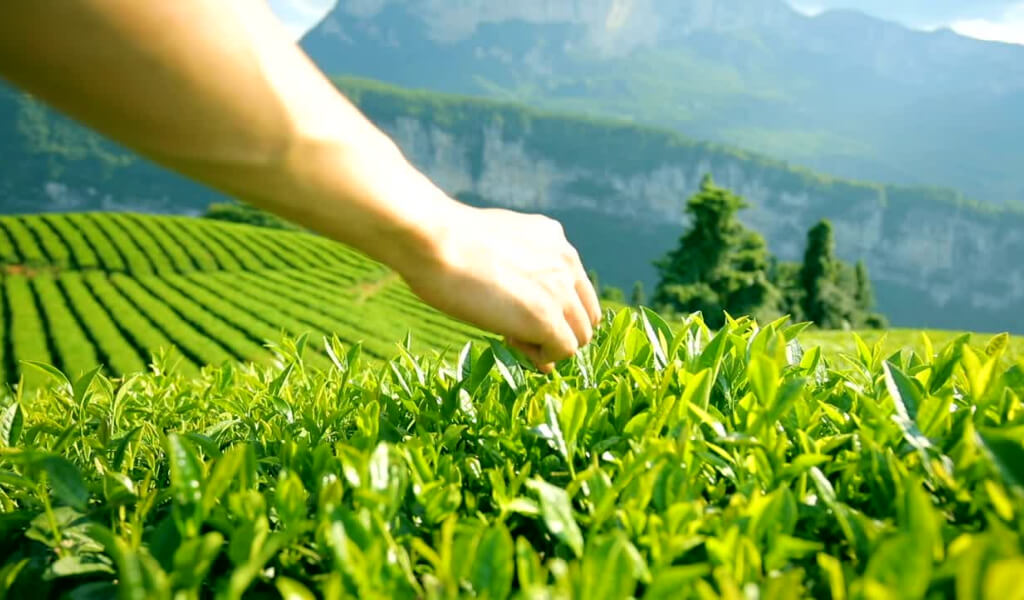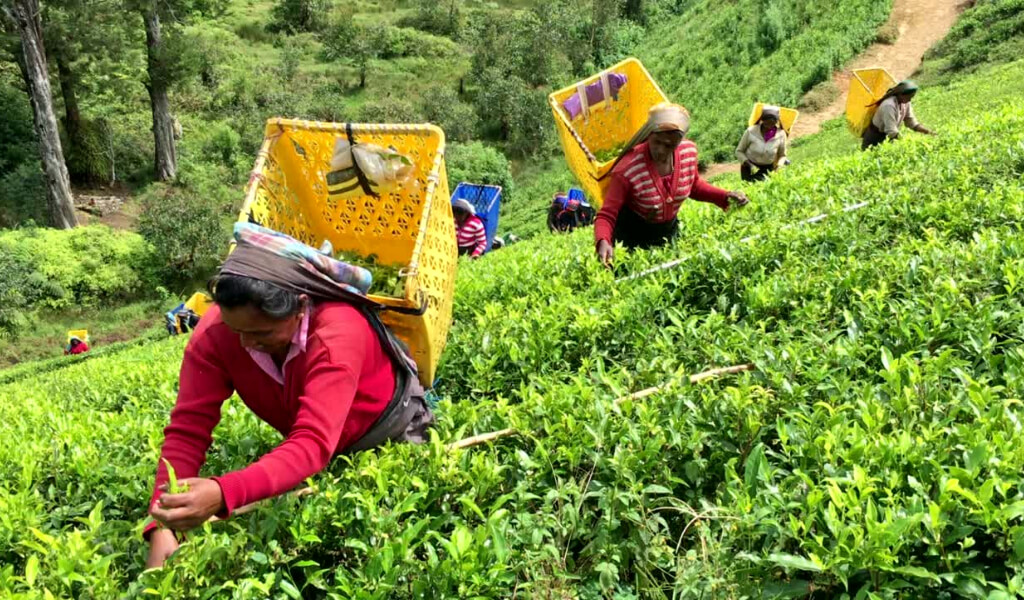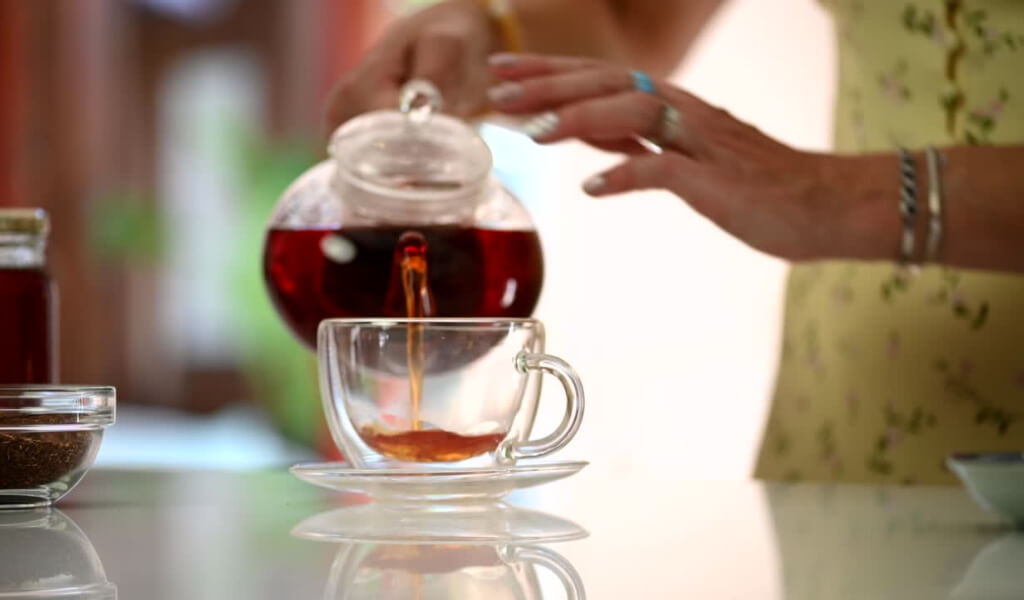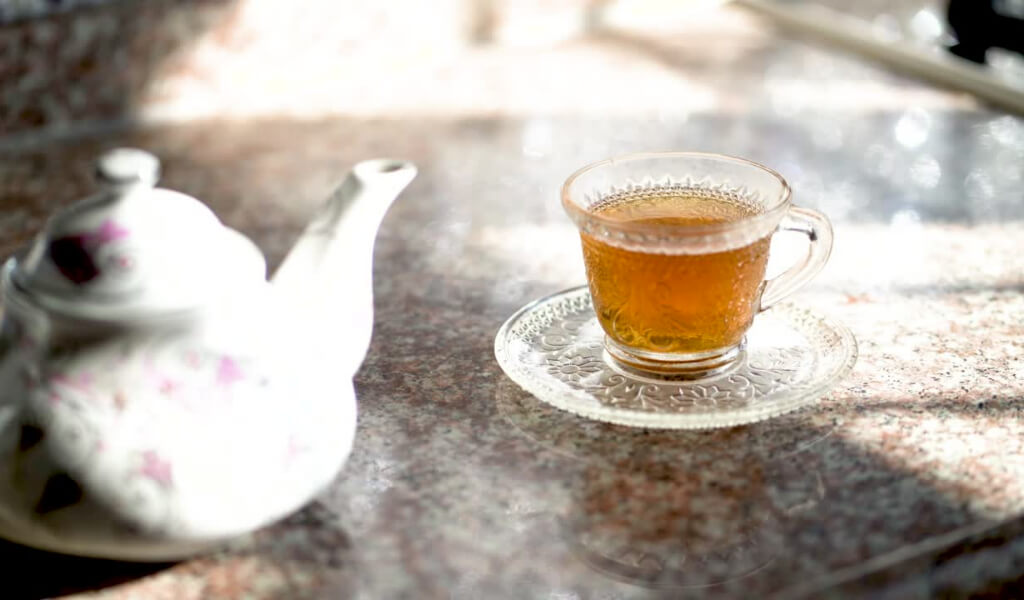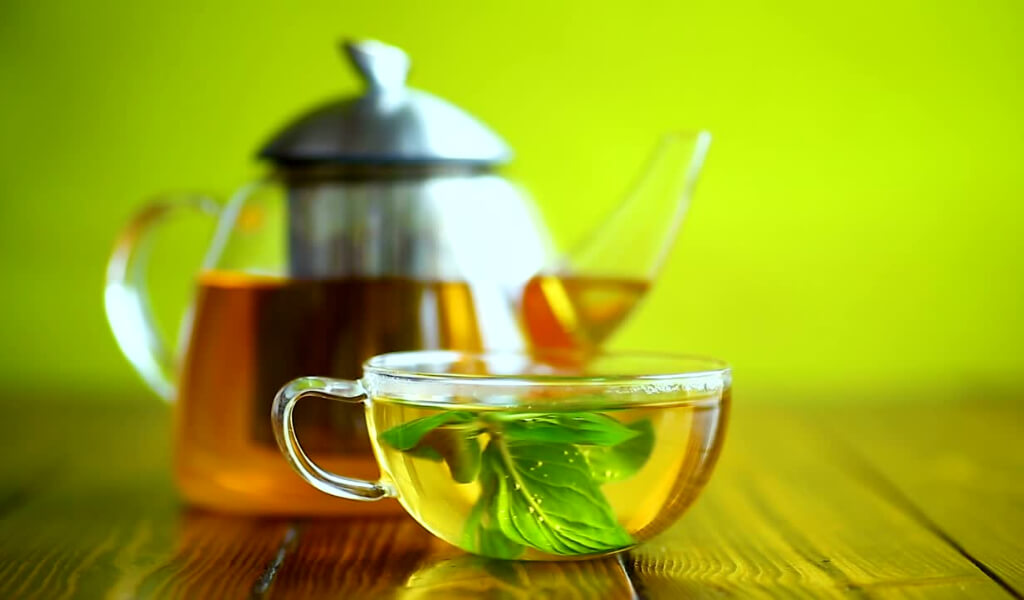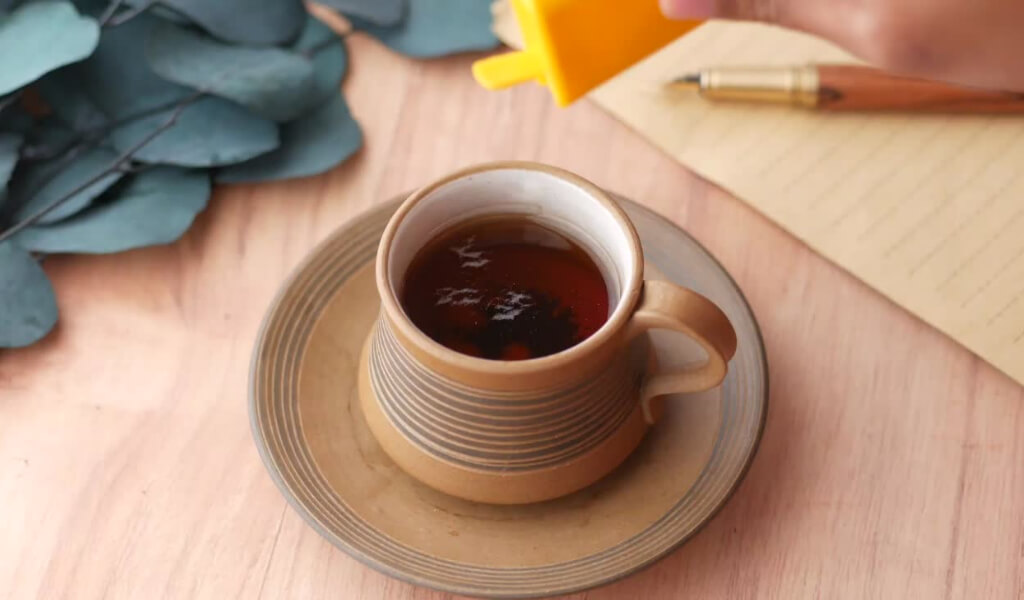Ever wondered, can you drink Tea while fasting? As an experienced fast practitioner, I’ve often grappled with this question. It turns out that not only can you, but it might be beneficial!
A study by Françoise Wilhelmi de Toledo and colleagues, involving 1422 participants, indicated that fasting with tea for 4-21 days yields positive results.
It is reassuring that our beloved brew can be a part of our fasting routine, making the experience more enjoyable and enhancing the benefits.
Can You Drink Tea While Fasting?
Drinking tea is a great choice during intermittent fasting as it doesn’t disrupt the fasting process. However, it’s important to avoid adding any your fasting routine can make it more enjoyable and easier to maintain, a tactic I’ve personally found beneficithing like sweeteners, milk, or cream to the tea as they can break the fast.
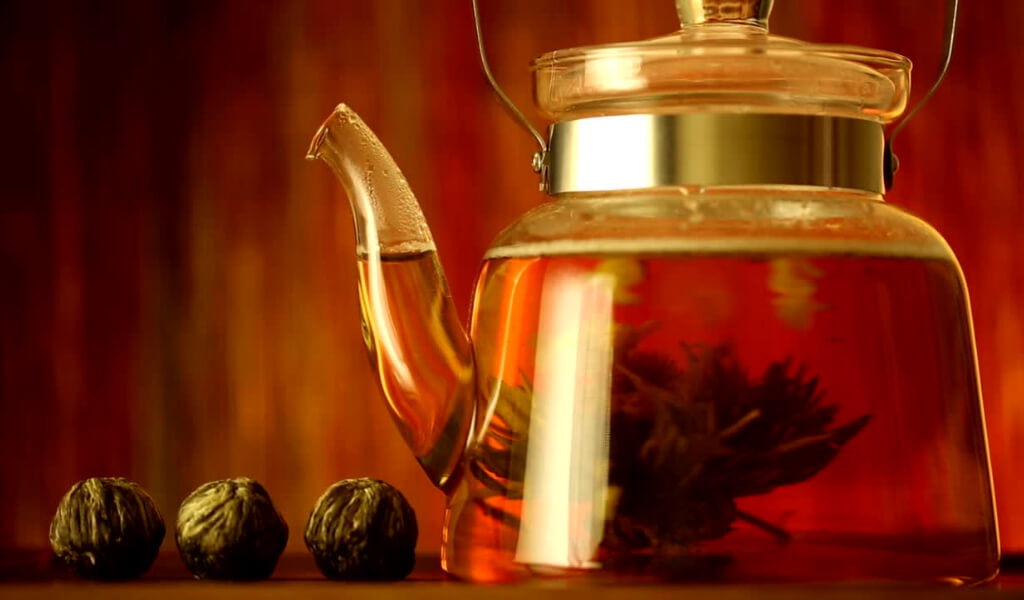
In water fast, a practice rooted in many traditions from Buddhism to Ayurveda, having various drinks can be refreshing. You’re not restricted to just water. A cup of your favorite tea or even black coffee can help maintain hydration and ease fasting.
Explore a world of teas to diversify your fasting days. Whether it’s the antioxidant-packed sencha or matcha green tea from Japan, the intricate oolong from China, the delicate white tea, strong black tea, or various herbal options like chamomile or peppermint, they all offer essential hydration and a distinctive taste.
With that cleared up, let’s delve into the specifics of fasting tea.
What is Fasting Tea?
Simply put, Fasting teas are unsweetened teas you consume during your fasting period. They could be different types, such as green, herbal, or black tea. The trick is to drink them without additives like sugar or milk, keeping your caloric intake in check.
As I’ve learned from nutrition experts like Julia Zumpano, a registered dietitian at the Cleveland Clinic, when you’re fasting, you aim to avoid any food or drink that contains calories. This means typical morning beverages such as a creamy latte or a sugar-laden juice are off the table. However, black coffee, unsweetened tea fast, and water are all fair game because their calorie content is insignificant for fasting.
Now, let’s talk about intermittent fasting, a popular health and wellness trend. It’s a unique eating pattern that alternates between periods of eating and fasting. Some may compare it to ketogenic or paleo diets, but it’s more about the eating schedule than specific food restrictions.
You can achieve this through time-restricted fasting, which is often likened to circadian rhythm fasting. In this approach, you have an eight-hour eating window each day, usually from noon to 8 p.m. Many opt to skip breakfast, making this method quite popular.
Alternatively, there’s the alternate-day fasting approach, similar to the eat-stop-eat method. This involves alternating between eating a normal diet one day and fasting or having a small meal of 500 calories or less the next day.
Another method I’ve come across is the 5:2 approach. This involves eating normally five days a week and fasting for the other two days. It’s a flexible method, much like the Warrior Diet, but with a less rigid fasting period.
Intermittent fasting, much like exercise and a balanced diet, offers various health perks. A 2022 Frontiers in Nutrition review highlights weight loss, enhanced insulin sensitivity, and improved cholesterol control among these benefits. Additionally, there’s some indication that intermittent fasting could lower inflammation, a factor in conditions like arthritis and Alzheimer’s.
However, I must emphasize that intermittent fasting isn’t for everyone. It’s similar to other lifestyle changes, such as starting a new exercise routine or adopting a specific diet like veganism or the Mediterranean diet. It requires a certain level of care and personal suitability. People with a history of eating disorders, women who are pregnant or breastfeeding, and people who have seizures, for instance, should avoid this practice.
Now that we’ve understood intermittent fasting tea, it’s time to explore its benefits during intermittent fasting.
Read More:
- Can I drink Tea after Tooth Extraction? Comprehensive Explanation
- Chicken Salad Tea Sandwiches Recipes: Ultimate Guide For A Yummy Dish
- Can Dogs Drink Tea? For your pet’s health, don’t ignore it
- Can Cats Drink Tea? For your pet’s health, don’t ignore it
- How long do Tea Lights Burn? Detailed Explanation
Benefits of Drinking Tea During Intermittent Fasting
Drinking tea while fasting can aid in weight loss and provide several health benefits. This includes protecting the heart, promoting longevity, potentially preventing type 2 diabetes, preserving cognitive health, and maintaining bone density, as supported by numerous studies. However, it’s important to note that other lifestyle factors can also influence these benefits.
To answer a frequently asked question, “Does tea break intermittent fasting?” the short answer is no. Tea does not break an intermittent fast as it contains no calories, especially without sweeteners or additives.
Heart Health Benefits of Drinking Tea During Intermittent Fasting
Tea, an integral part of dietary practices worldwide from China to India, carries many heart-protective qualities.
A study published in the European Journal of Preventive Cardiology in 2020 highlighted that frequent tea drinkers showed a reduced likelihood of developing atherosclerotic cardiovascular disease. This research indicates that a habit as simple as daily tea drinking could delay heart disease onset or extend life span by approximately a year.
Tea and Longevity
Adding to tea’s impressive health benefits portfolio, a 2022 study in the Annals of Internal Medicine showed a correlation between regular tea consumption and reduced mortality risk.
This correlation suggests that daily tea drinking, commonly seen in cultures from the UK to Japan, could contribute to a longer life. However, it’s essential to consider other lifestyle factors that could also play a part in this correlation.
Drinking Tea May Reduce the Risk of Type 2 Diabetes
Tea consumption might also benefit metabolic health, possibly playing a preventive role against type 2 diabetes.
A study involving a substantial Chinese population, published in 2021 in The American Journal of Clinical Nutrition, associated daily green tea consumption with a lower risk of type 2 diabetes. Interestingly, this traditional beverage, loved in many East Asian cultures, could offer significant health benefits.
Cognitive Benefits of Drinking Tea
Tea, especially green tea, improves memory. Drinking different types of tea, like black, green, and oolong, lowers the risk of dementia in older adults.
Tea Consumption and Bone Health
Last but not least, tea consumption could be beneficial for bone health. Some studies suggest that habitual tea drinkers exhibit higher bone mineral density, especially those who have been drinking tea for over a decade. This finding adds another layer of value to the traditional tea-drinking habit, prevalent in many cultures worldwide, such as Britain’s afternoon tea or China’s tea ceremonies.
With these benefits, let’s uncover the best teas to incorporate into your fasting regimen.
What are the best Teas for Fasting?
To answer the question, “What tea can I drink while fasting?” let’s dive into the best teas to consume during a fasting period. Since many people engage in fasting for its metabolic benefits, drinking pure hibiscus tea during your fast can help increase those metabolic benefits.
Best Tea to Drink While Fasting
Green Tea
Green tea is harvested from the Camellia sinensis plant and is rich in antioxidants and catechins. These compounds promote weight loss, making green tea an excellent companion for fasting. With a lighter flavor and a caffeine content of about 25mg per cup, green tea offers a delicate boost to your energy levels without affecting your sleep cycle.
Herbal Infusions
Among numerous herbal teas, Rooibos and Hibiscus shine. Rooibos, from South Africa, boosts fat metabolism and heart health without caffeine. Hibiscus tea, made from hibiscus flowers, is another caffeine-free herbal option full of antioxidants, offering a zesty detox during fasting.
Black Tea
Another derivative of the Camellia sinensis plant, black tea, offers a more robust flavor profile and a higher caffeine content than green tea. Its unique benefit lies in an amino acid, L-theanine, which slows the release of caffeine, providing sustained energy levels throughout fasting.
White Tea
White tea, the least processed derivative of Camellia sinensis, provides a delicate flavor profile and high antioxidant content. White tea’s subtle flavor and health benefits make it an appealing choice during fasting.
Oolong Tea
Falling between green and black tea, Oolong tea, a semi-oxidized derivative of Camellia sinensis, offers unique flavor profiles ranging from floral to toasty. Known for its potent antioxidant properties, Oolong tea adds a delightful variety to fasting tea options.
Ginger Tea
Ginger, a root with numerous health benefits, when brewed as tea, provides a strong flavor and aids in curbing appetite. Ginger tea also supports a robust immune system, making it an ideal fasting companion.
Yaupon Tea
Yaupon, the only naturally caffeinated plant native to North America, offers an exciting tea option during fasting. A unique blend of caffeine and theobromine in Yaupon tea helps reduce feelings of hunger while boosting mood and focus.
Peppermint Tea
Peppermint, a hybrid mint plant brewed as tea, acts as a natural muscle relaxant and can freshen breath instantly. With its cooling menthol flavor, peppermint tea adds a soothing and refreshing note to your fasting beverage options.
Rooibos Tea
Originating from the South African Red Bush plant, Rooibos tea provides an earthy flavor without caffeine. Known for aiding in fat metabolism and supporting heart health, Rooibos tea offers a robust option for those seeking caffeine-free fasting beverages.
Fasting Teas for Weight Loss
Fasting teas, particularly unsweetened ones, can aid in weight loss by replacing high-calorie beverages, and reducing overall calorie intake.
Understanding the role of tea in weight management is essential. It’s crucial to realize that weight loss isn’t solely attributed to tea consumption. Factors such as overall dietary habits, physical activity, stress management, sleep quality, and any existing medical conditions play significant roles in weight management, explains nutritionist Burdeos.
Nonetheless, being calorie-free, unsweetened tea is an excellent choice for those aiming to lose weight, particularly if coupled with intermittent fasting. As Burdeos points out, “Replacing high-calorie beverages like soda with tea during fasting periods can lead to a reduction in total calorie intake, thereby facilitating weight loss.”
Certain studies indicate that green tea’s blend of caffeine and catechins might promote weight loss. However, more scientific investigation is required to establish these effects.
While we have some top contenders for fasting teas, it’s essential to understand their potential risks.
The Fasting Teas Potential Risks
While filled with potential benefits, the world of fasting teas also houses its fair share of possible pitfalls. Side effects like sleep disruptions, dizziness, nausea, and heartburn can be common, especially among individuals with a heightened sensitivity to caffeine. Burdeos, a renowned nutrition expert, suggests that such individuals avoid caffeinated teas.
Certain health conditions also warrant a more cautious approach toward these beverages. Zumpano, a seasoned dietitian, warns, “For those grappling with conditions like atrial fibrillation or arrhythmia, avoiding caffeinated teas and opting for herbal varieties is a wiser choice.”
Furthermore, consumers should tread lightly when navigating the market of teas advertised for weight loss. Often marketed as dietary supplements, these products are less regulated than traditional food and medication categories.
“Weight loss teas can sometimes contain laxative herbs among their ingredients,” highlights Burdeos. It’s worth remembering that the Food and Drug Administration (FDA) doesn’t regulate dietary supplements with the same rigor as food and medications.
Thus, maintaining an informed approach and a discerning eye can help mitigate potential risks associated with fasting teas.
Keeping those risks in mind, let’s identify who might be the ideal consumer of fasting teas.
Who is the Fasting Teas suitable for?
Unless diagnosed with certain medical conditions such as arrhythmia, atrial fibrillation, or heightened sensitivity to caffeine, most individuals practicing intermittent fasting can safely consume fasting teas.
This recommendation, though broad, is not absolute. It’s crucial always to prioritize personal health concerns when incorporating any new dietary element.
For anyone unsure about the potential effects of fasting teas on their health, a conversation with a trusted healthcare provider, like a general practitioner or a registered dietitian, is strongly advised.
Key Tips & Tricks for Drinking Tea While Fasting
Navigating the world of tea while fasting can feel like a tightrope, but I follow some simple dos and don’ts to ensure I stay on track.
The Dos:
- Drink Unsweetened Teas: These are a fantastic choice during fasting because they are calorie-free. They will keep me fast and offer a broad array of flavors.
- Consider Herbal Teas: Herbal teas are especially helpful during fasting. They are rich in flavor and completely caffeine-free, which makes them a great option at any time of the day.
- Stay Hydrated: Tea can help meet my hydration needs during a fast, but I make sure it doesn’t replace water. It’s an addition, not a substitute.
The Don’ts:
- Avoid ‘Detox’ or ‘Weight-Loss’ Teas: These teas often contain additives or herbs that could disrupt the fasting process. It’s best to stick with pure, simple teas.
- Don’t Overdo Caffeine: While some teas with caffeine can be beneficial, it’s important not to consume too much. Overconsumption can lead to sleep disturbances or a jittery feeling. This is why I am mindful of the type of tea I choose and when I drink it.
- Skip Sweetened or Flavored Teas: Teas with added sugars or artificial flavors can break the fast. I always make sure to read labels carefully.
My Ultimate Guide to Safeguarding Fasting Teas
Selecting the right fasting tea and maintaining its freshness can make all the difference to the tea-drinking experience during fasting.
Picking the Right Tea
I follow some ground rules when picking out the best tea for fasting. I’ve learned from experts to focus on simple, regular teas. For instance, if I’m in the mood for green tea, I just go for a pack that lists ‘green tea’ as the only ingredient.
While the ‘weight loss’ or ‘detox’ teas might sound tempting, I stay clear of those. Over time, I’ve found that these teas often contain ingredients like senna or cascara sagrada, known as laxatives. Trust me, rushing to the restroom while you’re fasting is not a fun experience. Moreover, these ingredients aren’t even a safe weight-loss method.
Another tip I’ve found useful is to check the caffeine content in teas, especially those marketed for weight loss. High amounts of caffeine can lead to an upset stomach, cramps, nausea, and diarrhea. Not the best way to spend a fasting day.
Storing the Tea
When storing my teas, I’ve learned a few tricks to keep them fresh for as long as possible. The best place is dark and away from heat and moisture, like a kitchen cupboard.
I always store my tea in food-safe, opaque, airtight containers. This reduces exposure to light and minimizes oxidation, helping to keep the flavor intact.
And just like the evil gremlins, tea bags hate sunlight and warm, humid areas. I always keep my teas tucked away in the dark, ensuring a fresh and aromatic brew every time I decide to fast.
Drinking tea during fasting can be a great experience if you do it right. And remember, always listen to your body and make adjustments as needed!
How Much Fasting Tea Should I Drink?
According to the FDA, an intake of up to 400 milligrams of caffeine daily is generally considered safe. To give you a perspective, an 8-ounce mug of black tea contains about 47 milligrams of caffeine, and the same amount of green tea has around 28 milligrams.
For anyone starting with fasting teas, pay close attention to the caffeine content of your chosen tea. This simple step can ensure a safe and beneficial tea-drinking experience while fasting.
Conclusion
Summing up, drinking tea during fasting is not just permissible but can also be beneficial. Regular, unsweetened teas like green, black, rooibos, or herbal ones can offer a zero-calorie solution to manage hunger. But remember to watch the caffeine content. So, when faced with the question – “To Brew or Not to Brew?” during fasting, I’d say, confidently brew that tea and relish it!
Thanks from Spiritea Drinks
FAQs
Can you drink green tea while fasting?
Caffeinated teas such as black tea and green tea, along with herbal teas, are safe to consume during intermittent fasting. If you’re sensitive to caffeine, opt for herbal teas instead.
Can I drink tea on a 3-day fast?
Yes, you can drink tea during a 3-day fast. Teas like green tea, black tea, and herbal teas can aid in keeping you hydrated and can also provide some beneficial compounds like catechins and antioxidants. Ensure they are unsweetened to maintain the fast.
What tea doesn’t break a fast?
Unsweetened teas such as green, black, herbal, rooibos or peppermint teas do not break a fast. They contain negligible or zero calories and won’t interfere with the fasting state.
Can you drink tea during a 16-hour fast?
Absolutely! You can drink unsweetened tea during your 16-hour fast. This can help you stay hydrated and aid in appetite control, making the fasting period easier.
Does tea break a fast?
Tea is a great choice for intermittent fasting since it doesn’t disrupt fasting, but avoid adding sweeteners, milk, or cream as they can break your fast.
What is dirty fasting?
Dirty fasting is a less strict version of fasting, allowing for small amounts of caloric liquids or foods. Although this might include certain teas, it’s not generally recommended for optimal fasting benefits.
Does herbal tea break a fast?
Herbal tea, containing various fruits, spices, and herbs, can disrupt your fast if it contains high sugar. To avoid this, use single-ingredient herbal teas such as peppermint, chamomile, or ginger tea, as they will not break your fast.
Can I drink tea with artificial sweetener during intermittent fasting?
Yes, you can drink tea with artificial sweeteners while practicing intermittent fasting. Artificial sweeteners, such as stevia or sucralose, generally have minimal or no calories, which makes them suitable for fasting. However, it’s important to note that some experts recommend avoiding artificial sweeteners altogether during fasting periods to maintain the metabolic benefits of fasting.
Does drinking tea break a fast?
Drinking tea doesn’t necessarily break a fast, depending largely on the type of tea and whether it’s consumed with any additives. Pure, unsweetened teas like green or black tea are generally acceptable during fasting periods due to their minimal calorie content.
Does green tea break a fast
Similar to Black Coffee, it is widely acknowledged that Green Tea does not disrupt your fasting state. Green Tea has an incredibly low calorie content, with only about 2 calories per 200ml. It is crucial to note that we are referring to unsweetened Green Tea, which means no sugar, sweeteners, or milk.
I’m Shanna, creator of Spiritea Drinks. I’m all about teaching people to grow their own food, tea, cook what they harvest, and eat with the seasons.
